
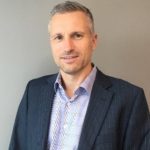
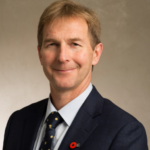
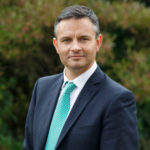
Lisa Martin
General Manager of Sustainability at Sanford Group
Karl Check
Group Manager Sustainability
Vector Limited
Andrew Kibblewhite
Chief Executive of the Department of the Prime Minister and Cabinet
James Shaw
Co-leader. Minister for Climate Change, Minister of Statistics, Assoc. Minister of Finance
Lisa Martin
General Manager Sustainability
Lisa Martin is General Manager of Sustainability at Sanford Group, New Zealand’s largest and most diverse seafood business. For Sanford, sustainability sits at the core of the business, being both fundamental to the company’s survival, and the foundation for its growth. A direct report to the CEO, Lisa is responsible for developing, implementing, communicating and integrating sustainability into mainstream Sanford business, with strategy, initiatives and reporting focused on the material issues. Her key areas of focus include governance and risk, marine plastics, ecosystem health, climate issues, partnerships and engagement.
Lisa is passionate about delivering outcomes that not only future proof, but position Sanford to deliver on its vision to become the Best Seafood Company in the World through the sustainable growth of the business. She also leads delivery of Sanford’s integrated Annual Reports, which have been recognised through international awards in the United States and Australasia.
Sanford is using the Sustainable Development Goals to inform our business strategy, align our sustainability work with global outcomes, and identify, foster and support partnerships to deliver against the Goals. Further insights into our areas of focus can be found in our most recent integrated Annual Report 2017 – The Power of –AND-.
Lisa has been actively working to support others on the journey to a sustainable future, including recently co-presenting workshops on the SDGs in Auckland, Wellington and Stuttgart.
Sanford is delighted to contribute to this Summit, providing a valuable opportunity to bring together a diverse range of stakeholders for the first time to exchange information, share ideas and work collaboratively to progress New Zealand’s commitment to deliver on the SDGs.
Karl Check
Group Manager Sustainability
Karl is Group Manager of Sustainability at Vector where he is overseeing the implementation of sustainability framework incorporating both the Sustainable Development Goals and the UN Global Compact. Over ten years of experience in sustainability Karl has been through the evolution of sustainability as a profession from the basics of waste, energy efficiency and carbon emissions to the current position as key informer to business strategy. Karl has experience in integrated reporting and is passionate about purpose led business where value creation is understood in its widest context.
Karl is leading on a programme of work that includes a comprehensive review of the impact of climate change across physical, economic and social dimensions; developing a sustainable supply chain for the business; accelerating access to clean and affordable energy; and creating a future proofed workforce.
Andrew Kibblewhite
Chief Executive of the Department of the Prime Minister and Cabinet
Andrew Kibblewhite has been Chief Executive of the Department of the Prime Minister and Cabinet (DPMC) since 2012. DPMC exists to support the effective conduct of executive government by the Prime Minister, the Governor-General and members of the Cabinet. The Department's principal role is provision of advice, on a daily basis, to the Prime Minister and Cabinet on the wide range of complex issues that confront the Government – particularly its policy priorities.
In this role, Andrew is Head of the Policy Profession, and is tasked with improving the overall quality of advice to Ministers and the analysis and evidence that sits behind that advice. Along with the Head of State Services, and the Secretary to the Treasury, Andrew has a pivotal role in the Government’s Better Public Services programme to ensure accountability and transparency across the Public Service.
Andrew was previously Deputy Chief Executive at the Treasury in a range of engagements. In 2011 he led the Secretariat that supported the Better Public Services Advisory Group whose report was released by the Prime Minister in 2012.
Prior to this, he served as Director of the Policy Advisory Group at the Department of the Prime Minister and Cabinet for five years.
Andrew began his career at the Treasury and in 2002 became General Manager Strategic Development at the Ministry of Research, Science and Technology. He spent five months on secondment to Industrial Research Ltd as General Manager Research and Development Operations.
Andrew is married with three sons. He has a BSc(Hons) from the University of Canterbury, a BCA from Victoria University, and an MBA from Stanford University.
James Shaw
MP - Green Party Co-leader
James Shaw strongly believes that New Zealand can lead the world in transitioning to a high-value, clean-tech, post-carbon economy that works for everyone.
He knows it’s a hugely ambitious, probably decades-long task, but it’s the reason he’s committed to a life in politics and one of the many reasons joined the Green Party in 1990.
James was appointed Green Party Co-leader on May 30, 2015, after being elected to Parliament as a list MP in 2014.
Prior to becoming an MP, James had a successful career in management consulting, primarily in London, where he lived from 1998 to 2010.
While there, he worked with large, multinational companies across Europe and around the world, developing their sustainable business practices.
It was while James was in the UK, studying for a Master’s degree in sustainable development and business leadership, that he realised that the private sector alone wasn’t able to affect change at the speed and scale necessary to meet the great challenges of our time.
With that realisation also came a call to action, and James moved back to Wellington, the city where he was born and raised, with the aim of being elected to Parliament.
James believes that, with vision and purpose, politicians can bring the large-scale, transformational change that is needed to build a truly inclusive economy, and a healthier planet.
His diverse business experience and expertise, from working for multinational corporates through to local start-ups and community organisations, will enable him to lead the Green Party and New Zealanders towards a high-tech post-carbon economy and society.
It might be the biggest challenge of a generation, but James also sees it as the greatest opportunity: he wants New Zealand to lead the way and show the world how it’s done.
When he’s not living and breathing sustainable economics, James enjoys spending time in his local community, Aro Valley, with his wife Annabel.

Andrea Carmen
International Indian Treaty Council
Andrea Carmen
International Indian Treaty Council
Andrea Carmen, Yaqui Nation, has been a staff member of the International Indian Treaty Council (IITC) since 1983 and IITC’s Executive Director since 1992. Andrea has many years of experience working as a human rights trainer and observer around the world, and was IITC’s team leader for work on the UN Declaration on the Rights of Indigenous Peoples. In 1997, she was one of two Indigenous representatives invited to formally address the UN General Assembly for the first time in history at the UN Earth Summit +5. In 2006, Andrea was a Rapporteur for the UN “Expert Seminar on Indigenous Peoples’ Permanent Sovereignty over Natural Resources and their Relationship to Land”, the first time an Indigenous woman had been selected to serve as a Rapporteur for an UN Expert Seminar. Andrea has been an expert presenter at UN bodies and seminars addressing Human Rights, Treaties and Treaty Rights, Cultural Indicators for Biological Diversity and Food Sovereignty, the UN Sustainable Development Goals (SDG’s), Indigenous Peoples’ Right to Participate in Decision-making, Indigenous Children under State Custody including impacts of Boarding and Residential Schools, Climate Change, Reproductive and Inter-generational Health, International Repatriation and Cultural Rights, Indigenous Languages and Rights of the Child including Indigenous Children’s right to Environmental Health. Since 2010, Andrea has served on a number of Boards and is a member of the Indigenous Peoples Global Steering Committee for the UN Framework Convention on Climate Change, which coordinates IITC’s International Work at the UNFCCC. She has presented in various UN Fora as well as Indigenous Peoples’ Conferences on the far-ranging impacts of the SDG’s for Indigenous Peoples as well as the human rights framework required for their effective implementation.

Abbie Reynolds
Executive Director
Sustainable Business Council
Abbie Reynolds
Executive Director of the Sustainable Business Council
Abbie Reynolds is the Executive Director of the Sustainable Business Council, a division of BusinessNZ that represents 86 member businesses, including some of New Zealand's largest companies. Its membership accounts for almost a third of private sector GDP.
Abbie champions the interests of businesses that want to be the best for New Zealand and the world. This includes driving action on climate change, governance, social impact and ecosystem health. She is also continuing to grow the organisation's focus on mainstreaming sustainable business practices throughout New Zealand.
Sustainable Business Council members are using the Sustainable Development Goals to inform their strategy, align their work with global outcomes, and identify partnerships for the Goals. For Abbie, the Summit presents an exciting opportunity to bring together business, academia, civil society and government for the first time to share ideas and work together on progressing the SDGs.
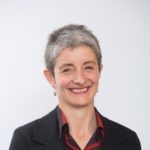
Penny Nelson
Deputy Secretary Environmental Performance, Innovation & Climate
Penny Nelson
Deputy Secretary Environmental Performance, Innovation & Climate
Penny Nelson holds policy responsibility for climate change, the marine environment and hazardous substances and new organisms. This includes oversight of the Environmental Protection Authority. She is also responsible for environmental monitoring and reporting, the Ministry’s interests in the science system, New Zealand’s commitments to international environmental agreements, and leadership of the Natural Resources Sector.
She brings a strong focus on building partnerships across sectors and a wealth of leadership experience in government, business and the scientific community including the Sustainable Business Council, Ministry for Social Development, Dairy NZ and Landcare Research.
Penny has returned to the Ministry, having worked here between 1998 and 2004. Penny holds a Masters of Science (Hons) in Resource Management from Lincoln University and a Bachelor of Arts (Hons) in Political Science and English Literature from Otago University.

Hugo G. von Meijenfeldt
SDG Coordinator NL
Dutch Ministry of Foreign Affairs
Hugo G. von Meijenfeldt
SDG Coordinator NL at Dutch Ministry of Foreign Affairs
Hugo G. von Meijenfeldt finished Law School at the Free University Amsterdam in 1981, majoring in public law and political science.
In 1982 he started at the Ministry of the Environment, working on legislation and litigation with regard to soil remediation programmes. He wrote several articles for international conferences and journals.
In 1994 he became head of the European policy division (including Presidency 1997), later deputy director International Affairs; 3 years chairman of the Committee on Environmental Policy of UN-ECE Geneva. In 2002 director for Soil, Water and Rural Environment, 2006 director for International Affairs, 2009-2013 Deputy and two half years Acting Director General for the Environment.
In 2009 appointed as Special Envoy for Climate Change at Dutch Ministry of Foreign Affairs and in 2013 Consul General for West-America based in San Francisco.
In 2016 he started as the Dutch Coordinator Implementation SDGs.

Prof Girol Karacaoglu
Head of School of Government
Victoria University of Wellington
Prof Girol Karacaoglu
Professor of Policy Practice
Girol Karacaoglu is the recently appointed Head of School of Government. He came to VUW from the New Zealand Treasury, where he was Chief Economist. Before then, he was the Chief Executive of the Co-operative Bank of New Zealand for nine years. His previous roles included General Manager at Westpac NZ, Chief Economist at the National Bank of NZ, and lecturer in Economics at Victoria University of Wellington. His academic fields of specialisation were in Monetary and Financial Economics, International Finance, Econometrics, Corporate Accounting and Finance. His current research interest is in public policy - an integrated approach to economic, environmental and social policies towards improving intergenerational wellbeing.
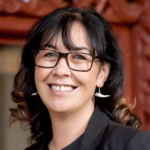
Prof Rawinia Higgins
Tumu Ahurei / Deputy Vice-Chancellor (Māori)
Victoria University of Wellington
Prof Rawinia Higgins
Tumu Ahurei / Deputy Vice-Chancellor (Māori) of Victoria University of Wellington
Professor Rawinia Higgins was appointed Tumu Ahurei / Deputy Vice-Chancellor (Māori) of Victoria University of Wellington in 2016. She was previously Victoria’s Assistant Vice-Chancellor (Māori Research) and Head of School for Te Kawa a Māui / School of Māori Studies. Professor Higgins came to Victoria as a senior lecturer in 2009 after holding academic positions at the University of Otago for 12 years. Her research expertise is Māori language revitalisation and, more specifically, language planning and policy.
Professor Higgins is a member of the Waitangi Tribunal, a board member of Te Mātāwai, Ngā Pae o Te Māramatanga (Māori Centre of Research Excellence), and is the Deputy Chair of the Māori Knowledge and Development PBRF portfolio.
In 2015, the Minister for Māori Development appointed her chair of the review of the Māori Language Bill and she helped shape the legislation enacted in April 2016. Te Mātāwai was created as part of the new legislation and governs the Māori Language Strategy dedicated to whānau, hapū, iwi and Māori communities. In 2017, Rawinia was awarded the Te Waitī award for te reo and tikanga at the Matariki awards.

Rachel Taulelei
CEO of Kono NZ
Rachel Taulelei
CEO of Kono NZ
Rachel Taulelei (Ngāti Raukawa, Ngāti Rarua, Ngāti Koata) has been the CEO of Kono NZ since 2015. Kono is a Maori-owned, top 100 New Zealand food and drinks company employing over 400 staff, farming over 530 hectares of land and sea, and exporting to over 25 countries. Their products include Tohu and Aronui wines, Kono mussels, Annies fruit bars, and Tutū cider.
Kono is an associated business of Wakatū Incorporation. Based in Nelson, Wakatū has approximately 4,000 shareholders who descend from the original Māori land owners of the Nelson, Tasman and Golden Bay Regions – Te Tau Ihu, the top of the South Island.
Founder of sustainable seafood company Yellow Brick Road, Rachel was formerly NZ Trade Commissioner in Los Angeles. She is a fierce advocate of New Zealand’s primary industry, and has spent 20 years promoting Aotearoa as a world-class producer of food and beverages.
Her directorships include Moana NZ, Wellington Regional Stadium Trust, New Zealand Wine Growers, Aquaculture New Zealand, the Sir Peter Blake Trust and the Young Enterprise Trust.
In 2012, Rachel was the recipient of a Sir Peter Blake Leadership Award, a board on which she now sits. In 2015 Rachel was honoured to be made a Member of the New Zealand Order of Merit for services to food and hospitality, and in 2017 was named a recipient of the Prime Minister’s Business Scholarship.
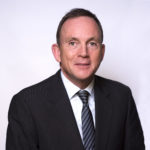
Rob Zaagman
Dutch Ambassador to New Zealand
Rob Zaagman
Dutch Ambassador to New Zealand
Ambassador Zaagman took up office in Wellington in mid-August 2014. Prior to this, he was the Consul-General of the Netherlands in Bavaria and Baden-Wurttemberg, Germany (2010-2014). From 2008 to 2010, he was the Ambassador for International Organizations in the Netherlands, Ministry of Foreign Affairs, The Hague, the Netherlands. He has been with the Dutch MFA since 1988, serving before as assistant professor of international law at Utrecht University and with the Dutch army.
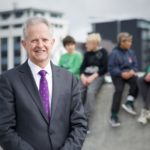
Judge Andrew Becroft
Children's Commissioner
Judge Andrew Becroft
Children's Commissioner
Judge Andrew Becroft was appointed the Children’s Commissioner for New Zealand for a two year period from June 2016. Prior to that he was the Principal Youth Court Judge of New Zealand from 2001 to 2016; and was appointed a District Court Judge in 1996.
After graduating from Auckland University in 1981 with a BA/LLB (Honours) degree, he practised in Auckland until 1986 when he then assisted with the establishment of the Mangere Community Law Centre and worked there until 1993. He then worked as a criminal barrister in South Auckland until his appointment to the District Court in Whanganui, from 1996.
Judge Becroft is a former council member of the Auckland District Law Society and the New Zealand Law Society. He is the Patron of the New Zealand Speak Easy Association Inc., which assists those with various forms of speech impediment, and is the Chairperson of the Board of the Tertiary Students Christian Fellowship (NZ) Inc.
Judge Becroft is married with three children, aged 22, 21 and 17.
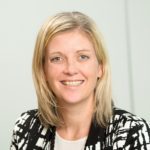
Louise Aitken
Chief Executive of the Ākina Foundation
Louise Aitken
Chief Executive of the Ākina Foundation
Louise is the Chief Executive of the Ākina Foundation. Prior to Ākina, Louise was with Fonterra, where she worked for 11 years, both in New Zealand and in the US. She led Fonterra Milk for Schools, New Zealand’s largest Corporate Social Responsibility programme, and KickStart Breakfast, in partnership with the Ministry of Social Development and Sanitarium. Her passion for sustainability and social impact was ignited, which lead her to join Ākina.
Louise brings a wealth of experience in leadership, operational excellence, strategy development, governance and commercial insight. Relationship management is a core strength and is an important asset for Ākina.

Anaru Fraser
General Manager Hui E! Community Aotearoa
Anaru Fraser
General Manager at Hui E! Community Aotearoa
Anaru Fraser is the Kaiwhakahaere Matua-General Manager of Hui E! Community Aotearoa. Working in the area of kaupapa Māori, including education, media, arts, mental health he has over 15 years international policy development experience in the United Nations area of food security and malnutrition and more broadly in education, health, human rights, justice, environmental and cultural rights related to Indigenous Peoples and civil societies. He’s a former public servant working in the natural resources and justice sectors of government including development issues both nationally – Crown-Māori Economic Growth Partnership – and internationally – the UN’s Sustainable Development Goals. He is part of an international non-governmental organisation of Indigenous Peoples from North, Central, South and Latin America, the Caribbean and the Pacific – and provides technical advice in relation to issues of food insecurity and malnutrition and cultural matters. He’s currently working on a doctoral thesis that brings together the SDGs and traditional Indigenous Māori knowlegde.eadership is far more than mindfulness for leaders, it is an integrated set of leadership practices that make an extraordinary difference to leaders, their teams and their organisations.
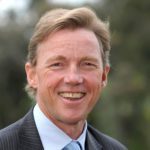
Prof John Thwaites
Chair of ClimateWorks Australia and the Monash Sustainable Development Institute
Prof John Thwaites
Chairman
John Thwaites is a Professorial Fellow, Monash University and Chair of ClimateWorks Australia and the Monash Sustainable Development Institute. He is a consultant at Maddocks Solicitors providing advice to the firm and its clients on climate change, water, sustainability and corporate social responsibility. He is one of six Co-Chairs of the Leadership Council of the global Sustainable Development Solutions Network (SDSN). Launched by UN Secretary-General Ban Ki-moon in 2012, the Network provides expert advice and support on the development of the post-2015 UN Sustainable Development Goals.
John chairs the Australian Building Codes Board, the Peter Cullen Water and Environment Trust, Melbourne Water and is a Director of the Australian Green Building Council. He was previously Chair of the National Sustainability Council, the Australian Centre for the Moving Image, the Climate Group Ltd in Australia and a Director of the Harold Mitchell Foundation. In 2008 -2009, John was a special adviser to the Timor-Leste Minister for Infrastructure and helped develop an Infrastructure plan for Timor-Leste. He has advised state and local governments on climate change and energy policy.
In 2012, John was named one of the top 100 Global Sustainability Leaders by ABC Carbon and Sustainability Showcase Asia. He chairs a project with the Brotherhood of St Laurence to develop policies to assist low-income Australians cope with the impact of climate change and chaired a joint Brotherhood of St Laurence/KPMG Report on a national energy efficiency program for low income households.
John was Deputy Premier of Victoria from 1999 until his retirement in 2007. During this period he was Minister for Health, Minister for Planning, Minister for Environment, Minister for Water, Minister for Victorian Communities and Victoria's first Minister for Climate Change. In these portfolios he was responsible for major reforms in social policy, health, environment and water. John was a Member of the Victorian Parliament from 1992 to 2007, and was a barrister prior to entering Parliament. He was a Councillor City of South Melbourne (1985-1993) and Mayor in 1991-1992. He has degrees in Law (Honours) and Science from Monash University.
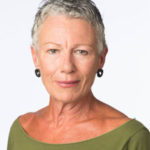
Kim Hill - MC
International award-winning journalist
Kim Hill
International award-winning journalist
Kim Hill has worked for newspapers, television and radio and currently hosts Saturday Morning with Kim Hill on RNZ National.
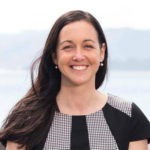
Jill Day
Wellington Deputy Mayor
Jill Day
Wellington Deputy Mayor
Jill Day is a passionate Wellingtonian, having moved to the Capital City of New Zealand when she was 14. She is a wife, mother of three and was a teacher before being elected to council in to Wellington’s Northern Ward in 2016, and appointed Deputy Mayor in September 2017.
She is the first Maori female Deputy Mayor in Wellington. Her iwi is Ngāti Tūwharetoa and she maintains close links with her culture, including the ability to speak in Te Reo Maori and she is working to become more fluent. She wants to be a voice for Wellingtonians in need – especially young people and families. Her passion in that area comes from her years as a primary school teacher and also from her many roles in the community, including as a chairwoman of school boards, the president of a local Playcentre (early childhood education programme), a member of residents’ associations and as a volunteer at a local school.
She also has a degree in biochemistry, molecular biology and genetics.

Jeffrey D.Sachs
Director of the Center for Sustainable Development at Columbia University
Jeffrey D. Sachs
Jeffrey D. Sachs is a world-renowned professor of economics, leader in sustainable development, senior UN advisor, bestselling author, and syndicated columnist whose monthly newspaper columns appear in more than 100 countries. He is the co-recipient of the 2015 Blue Planet Prize, the leading global prize for environmental leadership. He has twice been named among Time magazine’s 100 most influential world leaders. He was called by the New York Times, “probably the most important economist in the world,” and by Time magazine “the world’s best known economist.” A recent survey by The Economist ranked Professor Sachs as among the world’s three most influential living economists of the past decade.
Professor Sachs serves as the Director of the Center for Sustainable Development at Columbia University. He is University Professor at Columbia University, the university’s highest academic rank. During 2002 to 2016 he served as the Director of the Earth Institute. Sachs is Special Advisor to United Nations Secretary-General António Guterres on the Sustainable Development Goals, and previously advised UN Secretary-General Ban Ki-moon on both the Sustainable Development Goals and Millennium Development Goals and UN Secretary-General Kofi Annan on the Millennium Development Goals. He is a Distinguished Fellow of the International Institute of Applied Systems Analysis in Laxenburg, Austria.
Sachs is currently Director of the UN Sustainable Development Solutions Network under the auspices of UN Secretary-General António Guterres, and a Commissioner of the ITU/UNESCO Broadband Commission for Development. He is Chair and Founder of SDG USA, a non-governmental initiative to promote the Sustainable Development Goal concepts in the United States. Sachs is also co-founder and Chief Strategist of Millennium Promise Alliance, and was director of the Millennium Villages Project (2005-2015).
Prior to joining Columbia, Sachs spent over twenty years as a professor at Harvard University, most recently as the Galen L. Stone Professor of International Trade. A native of Detroit, Michigan, Sachs received his B.A., M.A., and Ph.D. degrees at Harvard.

Lisa Daniell
Head of Sustainability - Air New Zealand
Lisa Daniell
Head of Sustainability - Air New Zealand
Lisa Daniell is Air New Zealand’s Head of Sustainability, and is responsible for driving the airline’s sustainability strategy that is linked to its company-wide purpose of supercharging New Zealand’s success, socially, environmentally and economically. Air New Zealand is guided in this agenda by an external Sustainability Advisory Panel, comprised of renowned New Zealand and offshore-based sustainability thought leaders. Carbon emissions reduction and management is a big area of focus as part of Air New Zealand’s sustainability agenda, as well as sustainable tourism, biodiversity work in partnership with the Department of Conservation, supporting climate science research through a partnership with Antarctica New Zealand and the New Zealand Antarctic Research Institute, and sustainable sourcing within Air New Zealand’s vast supply chain.
Lisa studied science and law in New Zealand and has a Masters of Law (Environment Law) from the Vermont Law School in the USA. She started her career as an environment lawyer before joining Air New Zealand.

Bernard Savage
Ambassador of the European Union to New Zealand
Bernard Savage
Ambassador of the European Union to New Zealand
H.E. Bernard Savage comes to New Zealand from Brussels. He was Head of Division for four Arab Maghreb countries – Algeria, Libya, Morocco and Tunisia - during the Arab Spring.
From 2009-2013 he was the EU Ambassador to Sri Lanka and the Maldives. The EU was a lead actor in the peace process and nation-rebuilding after Sri Lanka's 20-year civil war.
This followed a stint where he was heavily engaged in the Middle East. From 2004-2009 he was the EU Ambassador to Saudi Arabia and the Gulf. Prior to that, in 2003, he was the European Commission's Envoy to Iraq.
A third focus of his career has been in economic integration. He was responsible for negotiations with future members of the EU on free movement of goods (2001-2003) and for regional economic integration within Southern Africa (2000-2001).
This built on his time as Economic Advisor in the Delegation to Lesotho (1996-2000) where he handled the economic & trade matters for that developing country. A "highlight" of that time was acting as Head of Delegation managing the crisis in Lesotho after South African military intervention in it in 1998.
A proud Scot, Bernard Savage attended Strathclyde University where he gained his Bachelors (Honours) (1980). During this time, he was editor of the university magazine. Subsequently he studied at Edinburgh Business School where he achieved an MBA in Strategic Planning (1999). Bernard is a Distinguished Fellow of New Westminster College, Vancouver, British Columbia, Canada and member of King Abdulaziz ibn Saud Order of Merit (First Class).
In addition, he represented Scotland in rowing. He rekindled this love by joining the Petone Rowing Club (although does not regard the 7.30 Sunday morning starts with much affection!).
On a personal note, New Zealand was a desired posting for Bernard Savage, as his wife is kiwi and this is the first time their young son has had to live in his maternal home country.
He is proficient in English, French, Spanish, Arabic and Portuguese.
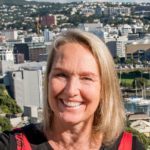
Marjan van den Belt
Convenor and Chair of the SDG Summit Steering Group
Marjan van den Belt
Convenor and Chair of the SDG Summit Steering Group
Marjan van den Belt, PhD. Is the Convenor and Chair of the SDG Summit Steering Group. Until January 2018, she was the Assistant Vice Chancellor (Sustainability) at Victoria University. Previously, she was Associate Professor and Director of Ecological Economics Research New Zealand at Massey University. She arrived in New Zealand in 2009 from Vermont, USA, where she was an independent research consultant bringing together diverse stakeholders to for collaborative solutions and practical actions (Mediated Modelling Partners, LLC). During this time, she also taught at the University of Vermont and co-founded a Cohousing/Ecovillage (Champlain Valley Cohousing). Going back to the ‘90s, she spent 5 years in Stockholm, Sweden, working on waste reduction with businesses, government and non-governmental organisations. Native to the Netherlands.
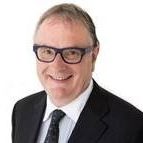
Jonathan Kings
Deputy Secretary of the Pacific and Development Group
Jonathan Kings
Deputy Secretary of the Pacific and Development
Before joining the Ministry of Foreign Affairs and Trade in 2010, Jonathan was a senior manager with New Zealand Trade and Enterprise and Industry New Zealand for nine years.
He had a range of responsibilities, including leading the investment attraction programme, and managing New Zealand’s trade promotion offices in Europe, and the Middle East, and in the Americas.
He also spent two years at the OECD in Paris working on regional development issues.
Prior to entering the public sector, Jonathan was chief executive of an Australasian energy sector consulting firm, and before that he was a senior manager with a multinational in the energy sector.









